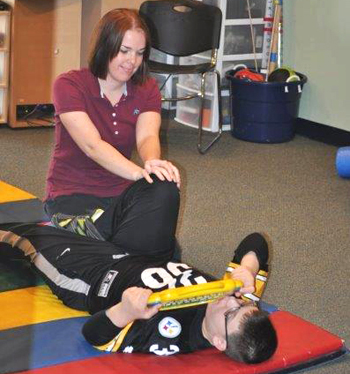
|
Pediatric Occupational, Physical, ABA/Behavioral, Feeding, Speech, and Language Therapies Main Clinic: 931-372-2567 1445 East 10th Street Cookeville, TN 38501 Email: [email protected] HIPAA Secure Email: [email protected] Fax: (931) 372-2572 ABA Clinic: 931-201-9534 400 Dubois Road Cookeville, TN 38501 Email: [email protected] Please call today to get started! Most insurances accepted! |

|
| Who needs therapy? | SE HABLA ESPAÑOL |
Sleep Issues
Sensory Processing Issues = Sleeping Issues
Did you know that the average person falls asleep within 15 minutes of going to bed?
Many children with gut digestion issues, sensory issues, non-integrated primitive reflexes, ADHD, Autism, and other disorders do not get into deep sleep or good sleep wake patterns. This can cause many issues during the day with mood, attention, learning and behaviors.
The two most common problems listed by those with sensory modulation disorder are difficulty calming enough to get to sleep and difficulty getting to, or staying in the deep stages of sleep.
Sensory integration therapy impacts the sleep issue, but the following tools can be supports until the time that integration has occurred. It is important to use sensory routines and tools that are a match for that particular individual's sensory system and ask your OT for help.
Some quick helpers until then:
*Having a consistent bedtime routine can alone provide comfort in its predictability
*Most people find a warm bath 1.5 hours before bedtime relaxing with Epsom Salts (magnesium deficiencies are linked to poor sleep and anxiety)
*Many children need white noise in their room to help create a filter, sound machines, and many sound music therapy options can help.
*All children need total darkness in a room to sleep well.
*No electronics within 2 hours of bedtime, the blue light affects the natural production of Melatonin which helps you sleep and go into deep sleep patterns.
*Tucking children in or using weighted blankets is a form of "swaddling" that utilizes comforting touch input to many
Site empowered by
WebOnTheFly